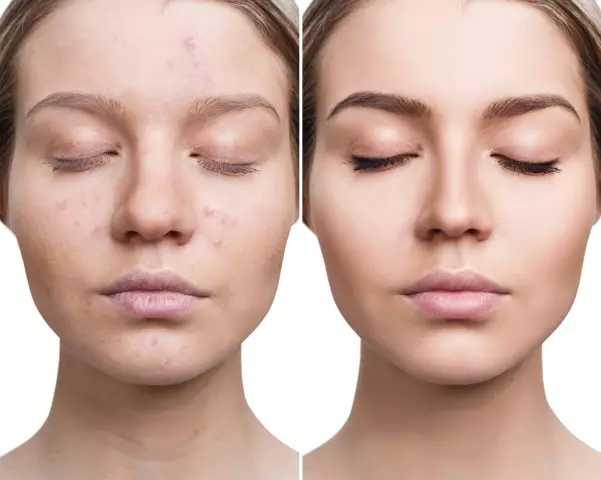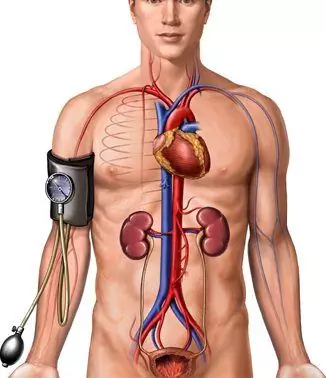- Author Rachel Wainwright wainwright@abchealthonline.com.
- Public 2023-12-15 07:39.
- Last modified 2025-11-02 20:14.
Glossitis
Glossitis is a special case of stomatitis and manifests itself as an inflammatory infection of the tongue caused by bacteria or viruses. Currently, there are several forms of glossitis. All of them progress rapidly and, if untreated, lead to the formation of mushroom growths on the surface of the tongue - papillomas.
Causes of glossitis

Glossitis can be triggered by a variety of viral infections, including the relatively harmless herpes. In addition, risk factors include: mechanical trauma to the tongue and mouth, burns, smoking, excessive consumption of alcoholic beverages, hot spices, hot food. Very often, glossitis is caused by tooth decay and other common dental diseases. There were also cases when the inflammatory process began after poisoning with salts of heavy metals or the use of low-quality toothpastes, balm-rinses and mouth fresheners. Taking into account the underlying causes of the disease, treatment of glossitis is almost always based on eliminating the root cause of the infection, which minimizes the likelihood of other common diseases of the mouth.
Glossitis - symptoms of the disease
- increased salivation;
- discomfort in the mouth, a feeling of the presence of foreign objects;
- burning sensation in the area of the tongue;
- an increase in the size of the tongue and a change in its color - from normal pink to bright red or burgundy;
- difficulty chewing and swallowing food;
- loss of taste;
- violations of speech function.
Types of glossitis
Desquamative glossitis - symptoms indicate the development of individual destruction of the epithelium of the tongue, which are expressed in the appearance of bright red spots on the sides and on the back of the organ. As the disease progresses, multiple cracks and grooves appear on the surface of the tongue. Patients experience pain, constant burning sensation. In most cases, desquamative glossitis affects pregnant women, people with diseases of the gastrointestinal tract, people with metabolic disorders and weakened immunity.
Diamond-shaped (median) glossitis - occurs against the background of low acidity of gastric juice, which is caused by chronic diseases of the digestive system. On the surface of the tongue, thickening of the epithelium of a bright red or cyanotic color appears. Rhomboid glossitis is dangerous because it often becomes chronic and has a recurrent nature. Depending on the intensity of the inflammatory process, therapeutic measures may require surgery or the use of radiosurgical methods.
Villous glossitis - manifests itself in keratinization and proliferation of filiform papillae of the tongue, which become hair-like. The inflammation is provoked by local irritants, as well as by some drugs that cause candidiasis, followed by the growth of a fungal infection.
"Folded" glossitis is most often a congenital anomaly. Wrinkles form on the surface of the tongue. Usually, they do not cause any inconvenience to the patient, therefore, the treatment is performed solely for aesthetic purposes, since some of the folds are quite deep and are visible to the naked eye.
Glossitis treatment
If you suspect glossitis, you should contact your dentist for a comprehensive examination of the oral cavity. The main task of the doctor is to determine the cause of the onset of inflammation, eliminate possible difficulties with breathing and swallowing food, and exclude the development of the infection into a chronic form. If glossitis is not treated, the symptoms of the disease will begin to progress, which can lead to the formation of tumors of the tongue and serious breathing complications.
First of all, you need to get rid of the pathogen. To do this, doctors use anti-inflammatory drugs, drugs for local correction of the immune system, and antibiotics. In addition, during the treatment of glossitis, special steroids (prednisolone, hydrocortisone) are used, which facilitate breathing, ensure painless swallowing of food, and relieve acute symptoms of inflammation. Antifungal drugs are recommended to remove papillomas.
Prevention of glossitis
High-tech diagnostics, full-fledged comprehensive treatment, competent selection of drugs - all this is good, however, glossitis is easier to prevent than to treat, so we want to list a few simple rules that will minimize the risk of developing an inflammatory process.
- be sure to observe dental and oral hygiene;
- brush your teeth in the morning and evening with the toothpaste recommended by your dentist;
- avoid injury to teeth, gums and mucous membranes;
- have regular checkups with an experienced dentist;
- do not abuse nicotine and alcohol;
- give up too spicy dishes.
YouTube video related to the article:
The information is generalized and provided for informational purposes only. At the first sign of illness, see your doctor. Self-medication is hazardous to health!






